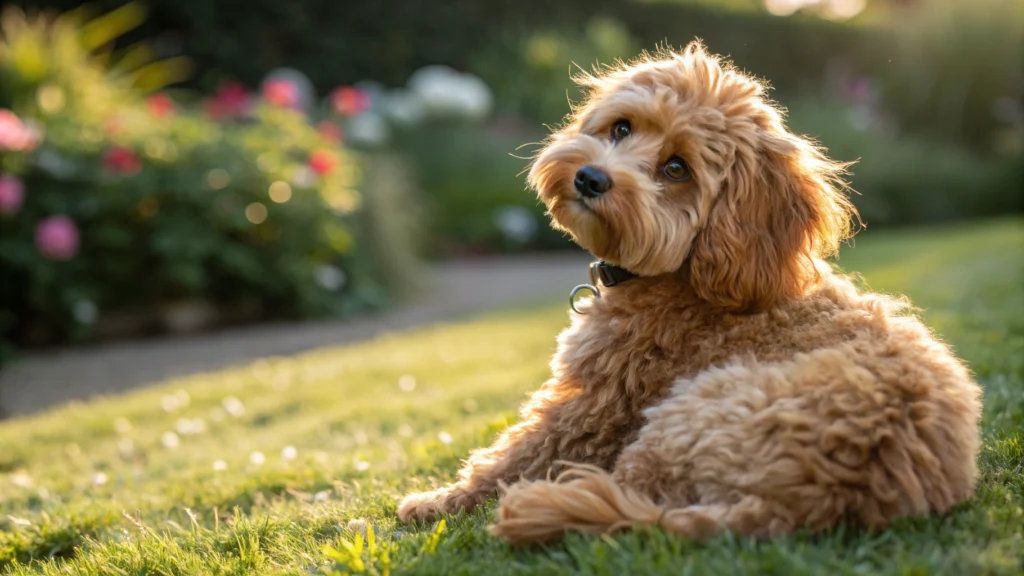
Chorkie: The Ultimate Guide to the Yorkie Chihuahua Mix
Hey there, fellow dog lover! Have you ever seen a tiny dog with the confidence of a giant and the sass of a superstar? You know, the kind that struts into a room like they own the place, all four pounds of them? Well, let me introduce you to my absolute favorite little firecracker: the chihuahua yorkie mix!
I’ve been a dog trainer and blogger for over a decade, and I have to say, these little guys have a special place in my heart. I remember when I first met a Chorkie named Gizmo. He was this tiny, fluffy thing sitting proudly on his owner’s lap, and he let out this mighty little “yap” as if to say, “I am here, and you will pay attention!” I was instantly smitten. If you’re curious about what happens when you mix the spunky Chihuahua with the glamorous Yorkshire Terrier, you’re in the right place. Grab a cup of coffee, and let’s dive into the wonderful world of the Chorkie together!
related: Chihuahua puppies: care, training, and health insights
What is a Yorkie Chihuahua Mix (Chorkie)?

So, what exactly is this magical little creature? Imagine taking the big, bold personality of a Chihuahua and blending it with the elegant, terrier-tude of a Yorkie. The result? A Chorkie! This isn’t just a random mix; it’s a purposeful designer dog that has been winning hearts for years.
Let me tell you, these dogs are so much more than just a cute face. They’re like a shot of espresso in a tiny, furry package—full of energy, loyalty, and enough personality to fill your entire home. If you’re dreaming of a pint-sized shadow who will be your best friend, Netflix buddy, and personal alarm system all in one, the Chorkie might just be your soulmate. We call them “Chorkies” for short, and honestly, the name is as playful and catchy as they are!
What Does a Chorkie Typically Look Like?
Okay, let’s talk about their looks! One of the most fun things about Chorkies is that they are a wonderful surprise. Since they’re a mix, no two are exactly alike! They can take after their Chihuahua parent, their Yorkie parent, or create the most adorable blend of both. It’s like a genetic lucky dip!
Appearance
Generally, you’re looking at a small, sturdy little dog. Their heads can be a bit rounded like a Chihuahua’s apple dome, or they might have a slightly flatter, more terrier-like muzzle. And their eyes! Oh, their eyes are usually dark, sparkling, and full of mischief and curiosity. Their ears are another fun feature—some stand straight up, all perky and alert, while others have a cute, soft flop. And that tail? It’s often high-set and might even curl over their back in a happy little arc. So stinkin’ cute.
Size
Let’s be real, one of the biggest draws of a Chorkie is their portable size. They are the definition of a lap dog, perfectly sized for apartment living or curling up in your favorite armchair. This is a pup you can easily scoop up for a cuddle or tuck into a doggy carrier for a day out.
Weight
Typically, a full-grown Chorkie will weigh in at a dainty 8 to 15 pounds. Think about carrying a small bag of sugar! This range really depends on which parent they favor. A Chorkie who takes after the tinier Chihuahua might be on the lower end, while one with more Yorkie in them could be a bit more substantial.
Coat Colors
Their coats are a true fashion show! You’ll see Chorkies in a stunning array of colors, including:
- Black and Tan: This is a classic Yorkie look—so sophisticated and elegant.
- Brown: Ranging from a deep, rich chocolate to a lovely light fawn.
- Blonde/Cream: These soft, light-colored pups are just gorgeous and look so cuddly.
- Red: A warm, reddish-brown that just shines in the sunlight.
- Parti-color: This means they have cool, unique patches of two or more colors. No two are the same!
- Solid Colors: While less common, some Chorkies rock a stunning solid coat.
The texture can vary, too! Some have the long, silky, hair-like coat of a Yorkie, while others have the shorter, smoother coat of a Chihuahua. It’s this wonderful unpredictability that makes every single Chorkie a one-of-a-kind masterpiece!
Do Chorkies Shed a Lot? Are They Hypoallergenic?
This is one of the top questions I get, and it’s a super important one, especially for my friends with allergies or who just don’t want dog hair on their black pants!
Do Chorkies Shed a Lot?
The honest answer? It really depends on your individual dog’s coat.
- If your Chorkie is a Yorkie-lookalike with that long, silky hair, you’re in luck! That type of coat is very similar to human hair and tends to shed minimally. You’ll find a stray hair here and there, but it’s nothing a quick daily brush can’t handle.
- If your pup leans more towards the Chihuahua side with a short, smooth coat, you might notice a bit more shedding, especially during seasonal changes. It’s not overwhelming, but you’ll definitely want to keep a lint roller handy.
So, while Chorkies aren’t heavy shedders like a Husky or a German Shepherd, they aren’t completely shed-free either. A little bit of fur comes with the territory of loving a furry friend!
Are They Hypoallergenic?
Let’s have a real talk about the “H-word.” As a dog expert, I always tell people: no dog is 100% hypoallergenic. Allergies are usually triggered by a protein found in a dog’s dander (dead skin flakes), saliva, and urine, not just the hair itself.
- Yorkshire Terriers are often on “hypoallergenic” lists because their hair-like coat sheds very little dander into your environment.
- Chihuahuas, especially the short-haired ones, do tend to shed more dander.
So, where does that leave the Chorkie? It’s a bit of a coin toss! If your Chorkie has that long, Yorkie-style coat, they might be more tolerable for someone with mild allergies. But if they have a shorter coat, they might not be the best fit.
My go-to advice, which I got from a brilliant vet, Dr. Sarah Miller, is this: “Spend time with the specific dog you’re thinking of bringing home. A couple of visits can tell you more than any breed label can.” If allergies are a concern in your house, this is the golden rule!
How Big Do Chorkies Get?
I know size is a huge factor, especially if you live in a cozy apartment like I used to! Good news: Chorkies are the perfect compact companions.
You can expect a fully grown Chorkie to stand about 6 to 9 inches tall at the shoulder. In terms of weight, they typically range from that sweet spot of 8 to 15 pounds.
To give you a little perspective:
- A Chihuahua is usually 6-9 inches tall and weighs a tiny 2-6 pounds.
- A Yorkshire Terrier stands about 7-8 inches tall and weighs around 7 pounds.
So, your Chorkie will likely be a perfect blend, falling right in the middle of their parents’ stats. Of course, just like people, some are a little smaller and some are a little bigger! A lot depends on the size of the parent dogs. If mom and dad were both on the petite side, you can expect a pocket-sized pup.
What is the Average Lifespan of a Chorkie?
One of the biggest blessings of sharing your life with a small dog is getting to enjoy their company for a long, long time. Chorkies are no exception!
You can typically look forward to an amazing 10 to 15 years with your furry best friend.
This fantastic lifespan is a gift from their parents:
- Chihuahuas are famous for their longevity, often living 14-16 years and sometimes even into their twenties!
- Yorkshire Terriers are also long-lived, usually enjoying 11-15 years of life.
Now, this isn’t a guarantee, of course. A long, healthy life comes down to a few key things:
- Good Genes: Always try to find a responsible breeder who health-tests their parent dogs.
- Top-Notch Nutrition: Feeding them high-quality food is like giving them premium fuel.
- Regular Exercise: Keeping them moving and fit is crucial.
- Loving Vet Care: Regular check-ups catch little issues before they become big problems.
- A Safe, Happy Home: Lots of love and cuddles are mandatory!
As my own vet, Dr. Emily Carter, always says, “Small breeds like the Chorkie are built for the long haul. With excellent care and a little luck, they can be by your side through many of life’s chapters.”
What Are the Common Personality Traits of a Chorkie?
Alright, let’s get to the good stuff—the personality! This is where the Chorkie truly shines. Get ready for a dog who thinks they’re a giant trapped in a tiny body. They are bursting with character!
Here’s what you can generally expect from a Chorkie’s personality:
- Confident and Feisty: Don’t let the size fool you! These pups have more confidence than most people I know. They inherit this “big dog” attitude from both the brave Chihuahua and the tenacious Yorkie. It’s hilarious and admirable, but it does mean you need to be their calm, confident leader.
- Loyal and Affectionate: If you want a shadow, you’ve got one. Chorkies form incredibly deep bonds with their person or family. They want to be involved in everything you do—cooking, working, sleeping, you name it. They are champion cuddlers and lap warmers.
- Playful and Energetic: They may be small, but they have a turbo button! Chorkies love to play. A spirited game of fetch with a small ball or a fun tug-of-war session is their idea of a perfect afternoon.
- Alert and Vocal: Best. Watchdog. Ever. Your Chorkie will let you know about every squirrel, leaf, and delivery person within a three-block radius. They are incredibly alert and take their job as your personal security system very seriously. Early training is a must to manage the barking.
- Intelligent: These are smart cookies! They can learn commands and tricks with impressive speed. But be warned—their intelligence also means they can be clever little manipulators if you let them!
- Curious: Their noses are always twitching, and they have to investigate everything. They’ll follow you from room to room just to make sure they aren’t missing out on anything exciting.
- Slightly Stubborn: Ah, the terrier heritage comes out! They have a definite independent streak. Training requires patience, consistency, and really good treats. You have to convince them that what you want is also what they want.
Remember, every dog is an individual! Your Chorkie might be a bold adventurer or a slightly more cautious cuddler. The key to a well-rounded pup is tons of early socialization—introducing them to all sorts of people, places, and polite dogs in a positive way.
Are Chorkies Good With Children and Other Pets?
This is such an important question for families, and I always like to give a straight, honest answer. Chorkies can be wonderful with kids and other pets, but there are some very important “ifs” and “buts” to consider.
With Children
Chorkies can be great with kids, but it’s a match made in heaven only with the right kind of kids.
- Supervision is Non-Negotiable: Because of their tiny size, Chorkies are fragile. A well-meaning but overly enthusiastic toddler can accidentally hurt them by tripping, falling, or hugging too tightly. I never, ever recommend leaving any small dog alone with young children.
- Older, Dog-Savvy Kids are Ideal: Chorkies truly shine in homes with older, calm children who understand how to be gentle. They’ll adore a kid who knows how to play softly and respects when the dog needs a quiet moment.
- The Nipping Risk is Real: If a Chorkie feels scared, cornered, or hurt, their natural defense is to nip. It’s not because they’re mean; it’s because they’re small and vulnerable. Teaching kids to read doggy body language is a must.
- Socialization is Everything: A Chorkie puppy who is raised with kind, respectful children from day one is much more likely to see them as part of their pack.
I love what pediatric pet behaviorist Dr. Lena Hanson says: “It’s a two-way street. We must teach our children how to interact with dogs, and we must prepare our dogs for life with children. It’s a partnership that requires work from everyone.”
With Other Pets
With other furry family members, Chorkies can do well, but introductions need to be thoughtful.
- Other Dogs: Chorkies can be surprisingly bossy with other dogs! They often don’t know they’re small. If they are socialized early and consistently, they can have wonderful canine friends. But always be careful with much larger dogs—their play might be too rough for your little one.
- Cats: Many Chorkies live in perfect harmony with cats, especially if they grow up together. Their prey drive is usually pretty low, but a skittering cat can sometimes trigger their chase instinct. Slow and positive introductions are the way to go.
- Small Pets (Hamsters, Gerbils, etc.): I’d advise caution here. Both Chihuahuas and Yorkies can have a strong instinct to chase small, fast-moving creatures. For the safety of everyone, it’s best to keep them separated.
The bottom line? A Chorkie can be a fantastic family pet, but their success depends on a foundation of training, socialization, and teaching everyone in the house—both two-legged and four-legged—how to live together respectfully.
Health & Care
Let’s talk about keeping your Chorkie happy and healthy for all those wonderful years to come! As a doting dog mom myself, I know that proactive care is the best gift we can give our pups. Chorkies are generally pretty hardy, but being aware of their potential needs helps us stay one step ahead.
What Are the Common Health Problems or Concerns for a Yorkie Chihuahua Mix?
While Chorkies are typically healthy, they can be prone to a few conditions that are common in their parent breeds. Knowing about them means you can partner with your vet to watch for early signs.
Here are some health concerns to have on your radar:
- Dental Disease: This is the big one, folks! I can’t stress it enough. Chorkies have tiny mouths that are often overcrowded with teeth, which is a recipe for plaque and tartar buildup. We’ll dive deeper into this in a second because it’s so important.
- Patellar Luxation: This is a fancy term for a trick knee, where the kneecap slips out of place. It’s very common in small dogs. You might see your Chorkie skip for a step or two, then be fine.
- Hypoglycemia (Low Blood Sugar): This is especially a risk for puppies and very tiny adults. If they go too long without eating, they can get weak, lethargic, and shaky. That’s why little and often is the rule for feeding!
- Collapsed Trachea: More common in Yorkies, this is a weakening of the windpipe that causes a honking cough. This is the #1 reason I always recommend using a harness instead of a collar for walks.
- Portosystemic Shunt (PSS): This is a congenital liver issue where blood bypasses the liver. Symptoms can include being a “poor doer”—stunted growth, confusion, or seizures.
- Hydrocephalus: Sometimes called “water on the brain,” this is more common in Chihuahuas. Signs can include a dome-shaped head and neurological issues.
- Legg-Calve-Perthes Disease: This affects the hip joint, causing pain and limping in young, small dogs.
- Eye Problems: Keep an eye on their eyes! (Pun intended.) They can be prone to issues like dry eye, cataracts, and progressive retinal atrophy.
- Heart Issues: While less common, some can inherit heart murmurs or other conditions from their Chihuahua side.
The best defense is a good offense! My vet, Dr. Michael Kwan, always tells me, “Annual check-ups are your best tool. We can often manage these conditions beautifully if we catch them early.”
Do Chorkies Have Dental Issues?
Yes, yes, and yes! If you take away one thing from this entire guide, let it be this: your Chorkie’s dental health is paramount. This is, hands down, the most common issue I see in my small breed clients.
Why are their teeth such a problem?
- Overcrowding: Those tiny jaws are packed with a full set of teeth, leaving no room for proper cleaning. Food and bacteria get stuck in all the nooks and crannies.
- Plaque Party: All that trapped debris turns into plaque, which hardens into tartar faster than you can say “doggy breath.”
- Gum Disease: Tartar buildup leads to inflamed gums (gingivitis) and then full-blown periodontal disease, which is a painful infection that destroys the bone holding the teeth in place.
- Whole-Body Health: Here’s the scary part: the bacteria from a dirty mouth can get into the bloodstream and cause problems for the heart, liver, and kidneys.
What You Can Do:
Don’t worry, you’re not powerless! Here’s your action plan for a healthy mouth:
- Daily Brushing: This is the gold standard. I know it sounds daunting, but with a doggy toothbrush and tasty poultry-flavored toothpaste, most dogs learn to tolerate it, and some even love it! Start slow and make it positive.
- Dental Chews & Toys: These are your allies! Look for VOHC-approved chews and toys that are designed to scrape plaque away as they chew. Just make sure they’re the right size for your little guy.
- Special Dental Diets: Some kibbles are specifically designed with a texture that helps clean teeth as they crunch. Ask your vet if this is a good option for your Chorkie.
- Professional Cleanings: Your vet will recommend regular professional cleanings under anesthesia. This is the only way to get a truly deep clean below the gumline and address any problems.
As a veterinary dentist I once interviewed, Dr. Sarah Davies, told me, “Thinking of dental care as optional for a Chorkie is like thinking brakes are optional for a car. It’s essential for their health and comfort.” So, let’s make a pact to keep those Chorkie smiles bright and healthy!
How Much Exercise Does a Chorkie Need?
Just because they’re small doesn’t mean they’re couch potatoes! Chorkies have a good amount of energy and need daily activity to stay fit and—just as importantly—to stay out of trouble. A bored Chorkie is a destructive Chorkie!
Daily Exercise Requirements:
Aim for about 30 to 60 minutes of activity each day, broken up into fun little sessions.
- Daily Walks (15-20 minutes, twice a day):
- Two shorter walks are perfect. Remember, it’s not just about potty breaks; it’s about mental stimulation! All those smells are like reading the daily newspaper for your dog.
- Harness, harness, harness! I’ll say it until I’m blue in the face. Please protect their delicate necks by using a well-fitted harness.
- Be weather-aware. Their small size makes them sensitive to heat and cold. In winter, a cute little sweater is both fashionable and functional!
- Indoor Play Sessions (15-20 minutes):
- This is where you really bond! Chorkies love to play, and you don’t need a big yard to do it.
- Fetch: A mini tennis ball or soft toy down the hallway is great exercise.
- Tug-of-War: A fantastic game that also reinforces your bond and teaches impulse control (make sure they know “drop it”).
- Hide-and-Seek: Hide treats or their favorite toy and let them use their nose to find it. This is an awesome mental workout!
- Puzzle Toys: These are a lifesaver! They make your Chorkie think to get a treat, which tires them out just as much as a walk.
My Pro Tips:
- Mental Stimulation is Key: A tired brain is a happy Chorkie. Mix up their activities to keep them engaged.
- Listen to Your Dog: Some Chorkies are energizer bunnies, others are more laid-back. Adjust their activity to what they need.
- Safety First: Always, always leash them when you’re outside. Their confidence can lead them to chase a squirrel right into danger.
A well-exercised Chorkie is a well-behaved Chorkie. It’s that simple!
What is the Best Diet for a Chorkie?
You are what you eat, and that’s just as true for our dogs! Feeding your Chorkie a top-quality diet is one of the most direct ways you can impact their health, energy, and that gorgeous coat.
After years of talking to vets and nutritionists, here’s what I recommend for feeding a Chorkie:
- High-Quality Small Breed Formula:
- This is non-negotiable. Food made for small breeds has smaller kibble that’s easier for their tiny mouths to chew. It’s also more calorie-dense to fuel their faster metabolisms.
- Always look for a named meat as the first ingredient (think “deboned chicken,” not “poultry by-product meal”).
- Protein is Power:
- These active little dogs need good protein to maintain their muscle and energy. Look for a food with a solid protein content from quality sources.
- Healthy Fats for a Fabulous Coat:
- Omega-3 and Omega-6 fatty acids (from sources like fish oil or flaxseed) are what give them that shiny, healthy coat and support their brain health.
- Avoid the Junk:
- Steer clear of foods where the first few ingredients are corn, wheat, or soy fillers. Also avoid artificial colors, flavors, and preservatives.
- Portion Control is EVERYTHING:
- This is so easy to mess up! Because they’re so small, even a few extra kibbles can lead to weight gain. Use a measuring cup!
- I’m a huge fan of two to three small meals a day. This helps prevent hypoglycemia and keeps their energy stable.
- A general starting point is 1/2 to 1 cup of high-quality kibble per day, split into meals. But you must adjust for your dog’s age, metabolism, and activity level.
- Fresh Water Always:
- Make sure they have access to clean, fresh water 24/7.
- Treats Should be Tiny & Smart:
- Treats are essential for training, but they should be small, low-calorie, and make up no more than 10% of their daily calories. I like to use pieces of their regular kibble as treats sometimes!
- Talk to Your Vet:
- Your veterinarian is your best resource. They can recommend specific brands and portions tailored to your Chorkie’s unique needs.
Dr. Lisa Peterson, a veterinary nutritionist, once told me, “The most common health issue I see in small breeds is obesity from overfeeding. Being just a few pounds overweight puts immense stress on their tiny joints and organs.” So, let’s be strong and resist those begging eyes for their own good!
related: Bland Diet for Dogs with Diarrhea or Colitis & pancreatitis
How Often Should I Groom My Chorkie?
Grooming is more than just making your pup look pretty—it’s a key part of their health routine! How often you need to do it totally depends on what kind of coat your Chorkie sports.
If Your Chorkie Has a Longer, Yorkie-Style Coat:
- Brushing: Get ready for some daily bonding! Brush them every single day to prevent tangles and mats, especially in those high-friction spots like behind the ears and under the legs. A slicker brush and a metal comb are your best friends.
- Bathing: Every 2-4 weeks is usually perfect. Use a gentle, dog-specific shampoo and conditioner to keep that silky coat soft.
- Trimming: You’ll probably want a professional groomer’s help every 6-8 weeks for a trim. Keeping the hair around their eyes, paws, and back end short is important for comfort and hygiene.
If Your Chorkie Has a Shorter, Chihuahua-Style Coat:
- Brushing: 2-3 times a week is plenty. A rubber curry brush or a soft bristle brush will help remove loose hair and spread skin oils.
- Bathing: You can usually go 4-8 weeks between baths, or just when they get dirty.
- Trimming: Very little trimming is needed! Maybe just a little tidy around the paws.
The Universal Grooming Must-Dos for ALL Chorkies:
No matter the coat, these tasks are for everyone:
- Nail Trims: Every 2-4 weeks. Long nails are uncomfortable and can affect their gait. If you hear a “click-clack” on the floor, it’s time for a trim!
- Ear Cleaning: Check weekly. Clean them with a vet-approved ear cleaner to prevent waxy buildup and infections. Look for redness or a bad smell.
- Dental Care: I’m mentioning it again because it’s that important! Daily brushing is the goal.
Make grooming a positive, happy time from the moment you bring your puppy home. Give lots of praise and treats, and it will become a wonderful part of your routine. A well-groomed Chorkie is a comfortable, healthy, and happy Chorkie!
Do Chorkies Bark a Lot?
Let’s be real with each other: Chorkies can be little chatterboxes! Barking is in their DNA. Both Chihuahuas and Yorkies are known for their voices, and the Chorkie happily carries on that tradition.
But why do they feel the need to comment on everything? Let’s break it down:
Reasons for the Ruckus:
- They’re Your Watchdog: They take their job seriously! They’ll bark at the mailman, a dog across the street, a weird-shaped shadow… you name it. It’s their way of saying, “I’ve got this, Mom!”
- Anxiety or Fear: If they’re not well-socialized, new situations or people can make them nervous, and barking is their defense.
- Boredom: A bored Chorkie is a noisy Chorkie. If they don’t have enough to do, they’ll invent their own fun, which often involves barking at the ceiling fan.
- Attention-Seeking: If barking gets them a cuddle, a treat, or even you saying “No!,” they’ve learned it works. They just want your attention!
- Pure Excitement: Sometimes they’re just so happy to see you or so amped up for a walk that they can’t help but let out a joyful yap!
How to Manage the Melody:
You’ll never stop them from barking completely (and you wouldn’t want to—it’s how they communicate!), but you can teach them to dial it back.
- Train and Socialize Early: The number one prevention tool! A confident, well-socialized dog has less to be fearful or anxious about.
- Figure Out the “Why”: Does the doorbell set them off? Do they bark when you leave? Knowing the trigger helps you address the root cause.
- Reward the Quiet: The second they stop barking after a trigger, say “Yes!” and give a treat. Teach a “quiet” command by saying it calmly when they pause, then rewarding.
- Manage the Environment: Simple fixes can work wonders. Close the blinds if they bark at people outside. Turn on the TV for background noise.
- Meet Their Needs: Ensure they are getting enough physical exercise and mental stimulation. A tired dog is a quieter dog.
- Call in the Pros: If the barking feels out of control, a session or two with a positive-reinforcement trainer can make a world of difference.
With consistency and patience, you can teach your Chorkie when it’s okay to bark and when it’s time to be quiet.
Training & Behavior
Welcome to the most fun (and sometimes most challenging) part of life with a Chorkie! Training is all about building a beautiful, trusting relationship with your dog. They are whip-smart, which is a blessing and a curse!
Are Chorkies Easy to Train?
I’d rate Chorkies as moderately easy to train. They have all the tools to be star students, but they also have strong opinions!
The Pros (What Makes Them Easy):
- They’re Super Smart: They learn commands and tricks quickly. They’re problem-solvers!
- They Want to Please (When It Suits Them): Their deep loyalty means they often want to make you happy… especially if there’s something in it for them.
- Food Motivation: Most Chorkies would do just about anything for a tiny piece of chicken or a special treat. This is a huge advantage in training!
The Cons (The Challenges):
- That Famous Stubborn Streak: The chihuahua/yorkie yorkshire terrier mix in them gives them an independent mind. They might just look at you during a “come” command and think, “I’m good over here, thanks.”
- Short Attention Spans: Especially as puppies, their minds wander. Keep sessions short and sweet!
- “Small Dog Syndrome”: This is a trap so many owners fall into! We let little dogs get away with behaviors we’d never tolerate in a big dog because it’s “cute.” But a dog who gets away with everything is an unhappy, insecure dog. They need clear rules!
My Top Training Tips:
- Start the Day You Bring Them Home: Don’t wait!
- Use Positive Reinforcement: Treats, praise, and play are your tools. Never yell or punish.
- Be the Consistent Leader: Everyone in the family must use the same commands and rules.
- Keep it Short & Fun: 5-minute sessions, several times a day, are perfect.
- Have Patience: Some days will be better than others. Celebrate the small wins!
As my friend, canine behaviorist Dr. Elena Rodriguez, says: “Chorkies keep you on your toes! They respond best to owners who are more interesting and persistent than they are stubborn. Make training a game, and you’ll unlock their incredible potential.”
What Are Common Behavioral Issues in Chorkies?
Because of their unique blend of traits, Chorkies can develop a few specific behavioral challenges. Knowing what to look for is half the battle!
Here are the most common issues I see:
- Excessive Barking: We covered this, but it’s worth repeating! It’s their #1 behavioral call to action.
- Separation Anxiety: These velcro dogs hate being apart from their person. This can lead to destructive chewing, non-stop barking, or potty accidents when you’re gone.
- “Small Dog Syndrome”: This umbrella term includes:
- Bossiness: Growling or snapping to guard resources (food, toys, their favorite person).
- Leash Reactivity: Lunging and barking at other dogs on walks.
- Refusing to Obey: Ignoring commands because they’ve never had a reason to listen.
- House-training Difficulties: This is a very common hurdle. Their small bladders and sometimes stubborn natures can make potty training a test of patience.
- Fearfulness: Without proper socialization, some chihuahua and yorkie mix can become nervous around strangers or in new places, which can lead to fear-based nipping.
- Destructive Chewing: Usually a sign of boredom or anxiety. They need appropriate outlets for their chewing instincts.
- Begging & Counter-Surfing: They are clever and food-obsessed, making them master beggars and opportunistic thieves!
How to Tackle These Issues:
- Socialize, Socialize, Socialize: From puppyhood, expose them to the world in a positive, controlled way.
- Set Clear Boundaries: Don’t let them get away with behaviors just because they’re small. Be kind, but firm.
- Provide Plenty of Exercise and Mental Enrichment: A stimulated Chorkie is a well-behaved Chorkie.
- Never Use Punishment: It breaks trust and makes anxiety worse.
- Get Help: If you’re struggling, a professional dog trainer can be worth their weight in gold.
Raising a yorkie and chihuahua mix is a journey filled with laughter, a few frustrations, and endless love. By understanding their needs and personality, you’re setting yourselves up for a truly amazing life together. Thanks for letting me share my passion for this incredible mixed breed with you
please leave comment
you may like it
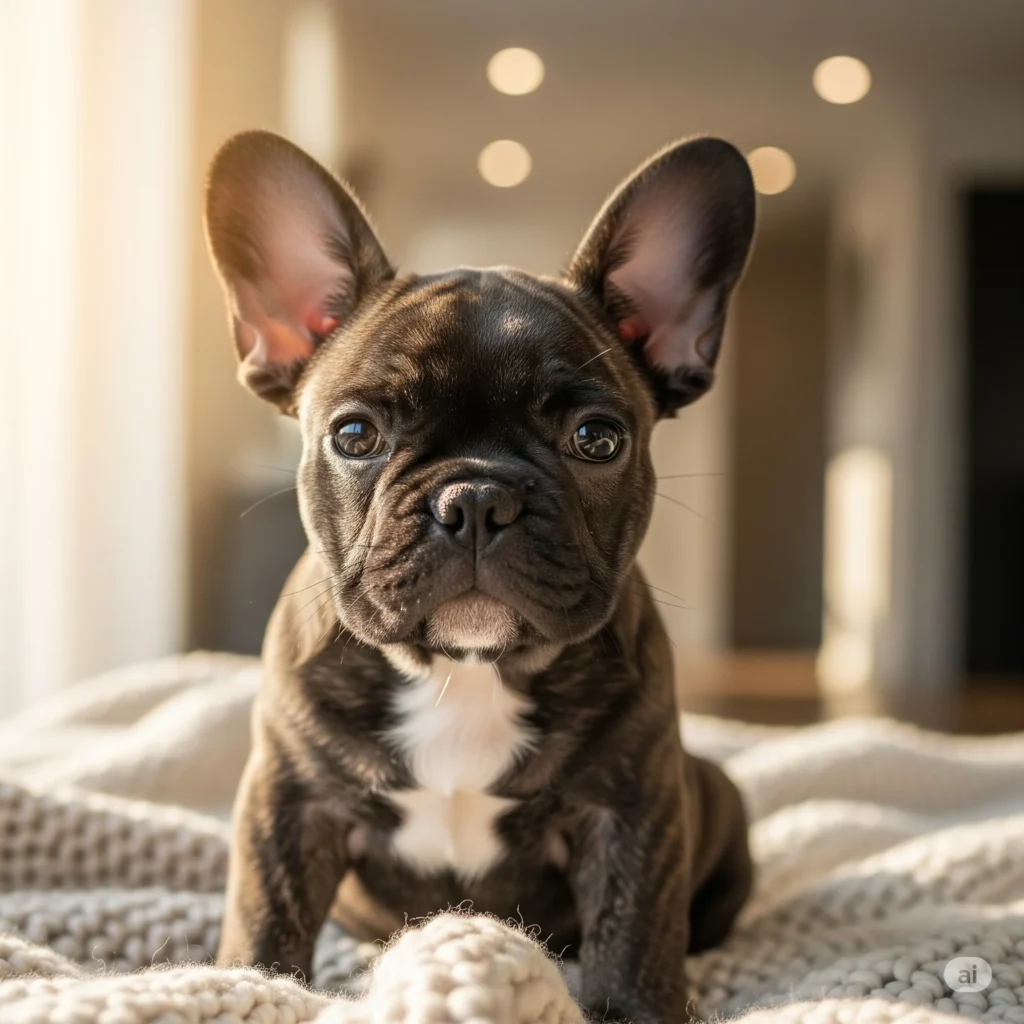
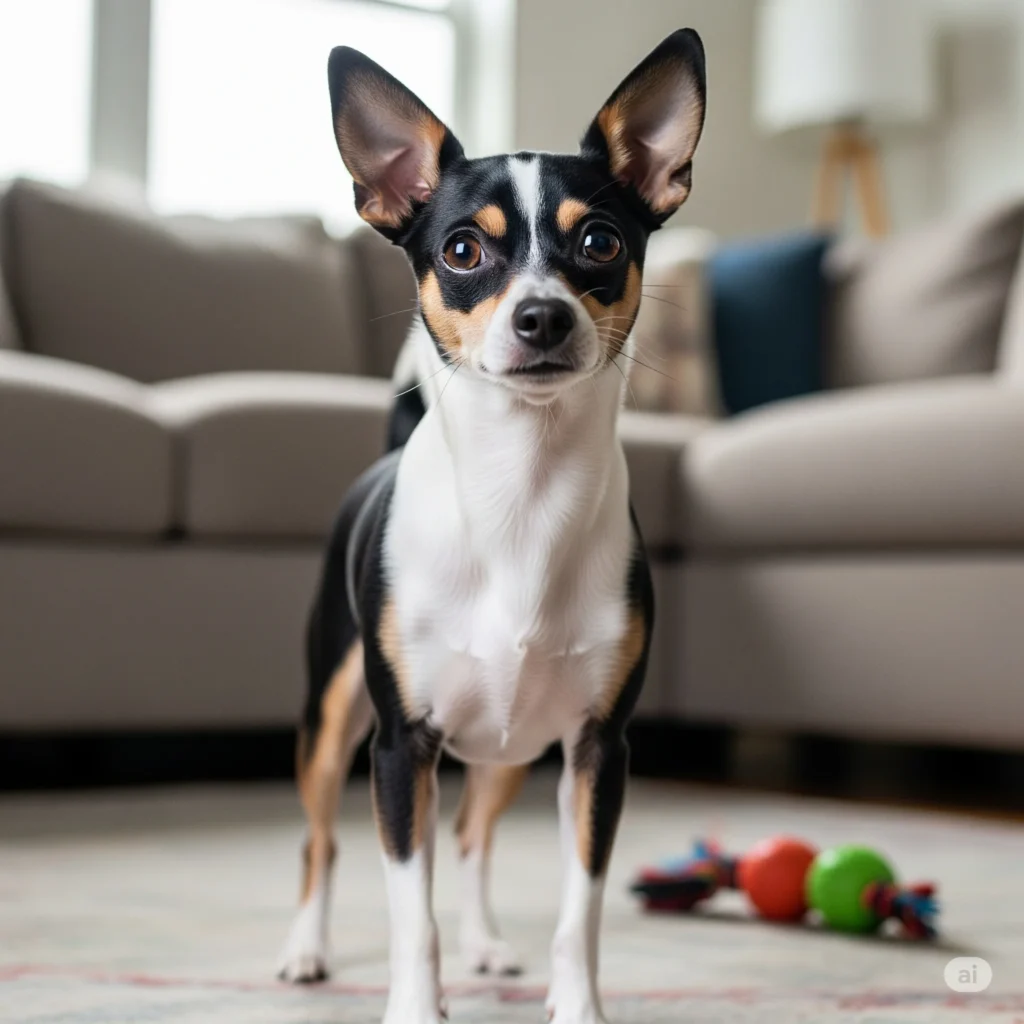
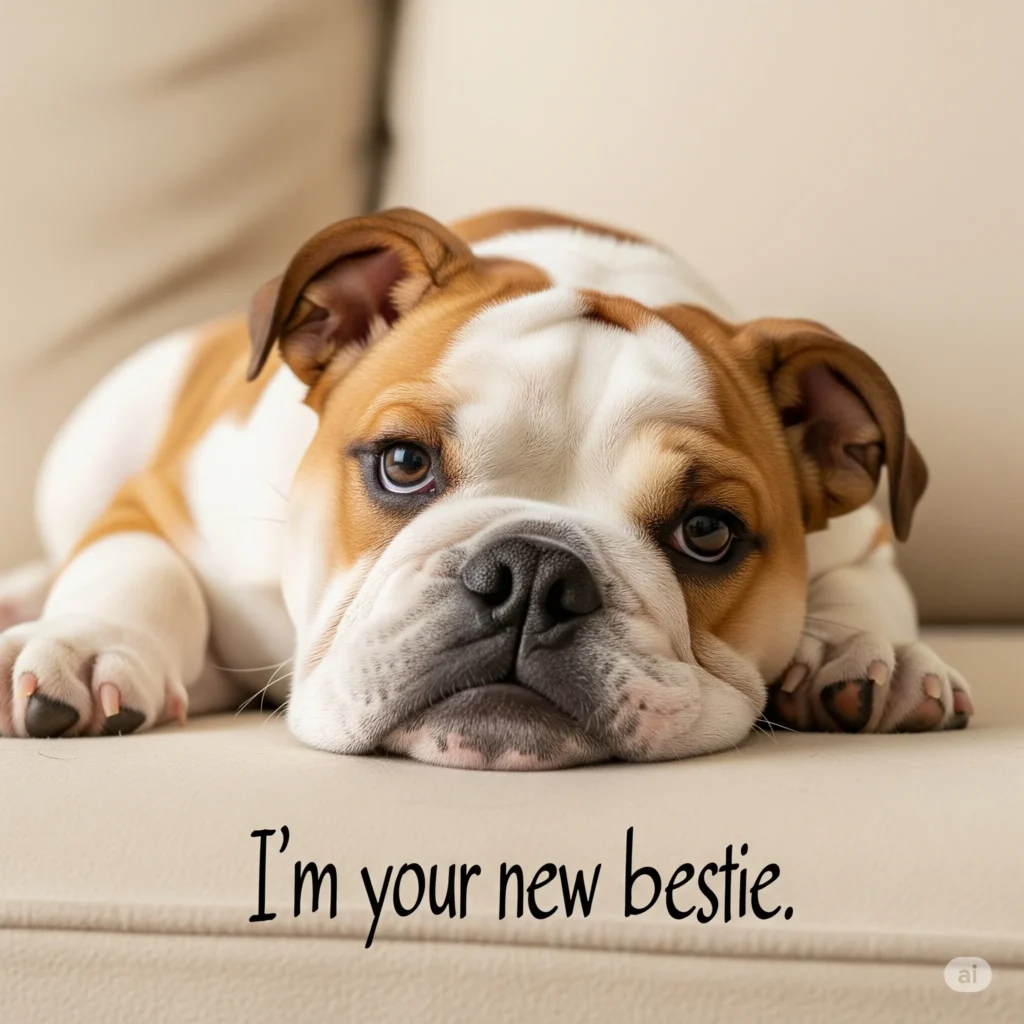

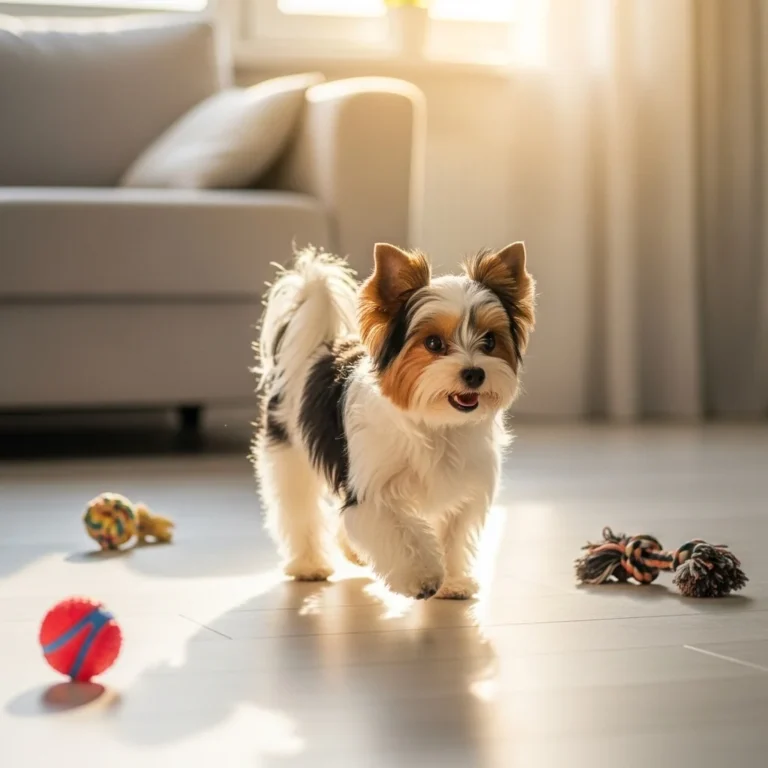
sources
- https://www.petmd.com/dog/breeds/chorkie
- https://wagwalking.com/breed/chorkie
- https://dogacademy.org/breeds/chorkie
- https://www.adventureden.ca/10-essential-insights-about-the-chihuahua-yorkie-mix
- https://www.dialavet.com/vet-answers/post/chorkie-puppy-health-issues-7477

